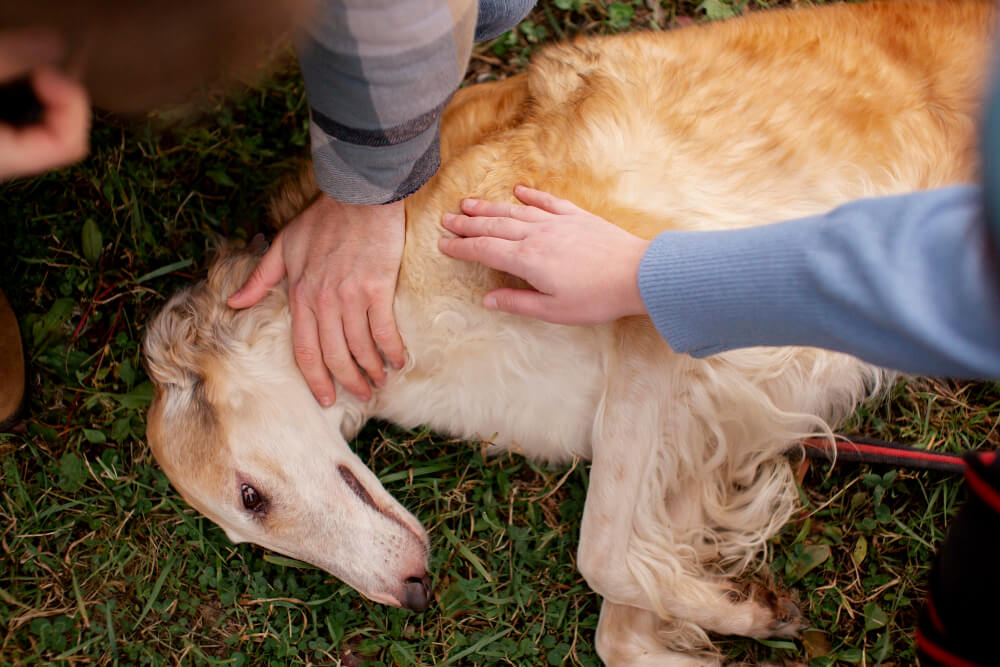If your dog has ever suffered from relentless itching, scratching, or skin irritation, you know how frustrating it can be for both you and your furry friend. Fortunately, there’s a medication that many veterinarians recommend to manage these symptoms—Apoquel for dogs. This prescription drug has become a go-to solution for pet owners dealing with dogs that suffer from allergies. But what exactly is Apoquel, how does it work, and is it the right choice for your dog? Let’s take a closer look!
What Is Apoquel?
Apoquel, or Oclacitinib, is a prescription medication specifically designed to relieve itching and inflammation caused by allergic dermatitis and atopic dermatitis in dogs. It was developed by Zoetis and has been available since 2013. Apoquel acts quickly to control itching, often within just a few hours, making it a popular choice for dogs suffering from constant scratching and discomfort.
How Does Apoquel Work?
Apoquel works by inhibiting certain enzymes called Janus Kinase (JAK) enzymes that are involved in the inflammatory process. These enzymes play a role in the immune system’s response to allergens, and by blocking them, Apoquel helps reduce itching, swelling, and redness associated with allergic reactions. This makes it effective in treating both environmental allergies (like pollen and dust mites) and food-related allergies.
Benefits of Apoquel for Dogs
Many dog owners have found Apoquel to be a game-changer when it comes to managing their dog’s allergies. Here are some of the key benefits of using Apoquel:
Quick Relief from Itching
One of the biggest advantages of Apoquel is how quickly it works. Many dogs experience significant relief from itching within just 4 hours of the first dose. This can be a huge relief for pets who are scratching themselves raw or unable to rest comfortably.
Suitable for Long-Term Use
Apoquel can be used for both short-term and long-term management of itching, making it a versatile option for dogs with chronic or seasonal allergies. While some medications lose their effectiveness over time, many dogs respond well to Apoquel even with extended use.
Less Impact on the Immune System
Unlike traditional steroids, Apoquel does not suppress the immune system as much, which means fewer side effects. This makes it a safer option compared to some older medications, particularly for long-term use. It can also be used alongside other medications and treatments without significant interactions.
Conditions Apoquel Treats
Apoquel is primarily used to treat two common conditions in dogs related to allergies:
Allergic Dermatitis
Allergic dermatitis occurs when a dog has a reaction to allergens in their environment or food. Symptoms often include itching, redness, hot spots, and skin irritation. Apoquel can reduce these symptoms, making your dog feel more comfortable.
Atopic Dermatitis
Atopic dermatitis is a chronic skin condition caused by a genetic predisposition to allergies. It’s often a lifelong issue that requires ongoing management. Apoquel can be a long-term solution to keep symptoms under control, allowing your dog to live a happier, itch-free life.
How to Administer Apoquel to Your Dog
Administering Apoquel is relatively simple, but it’s important to follow your veterinarian’s guidance to ensure the best results.
Dosage Information
Apoquel is available in tablet form and comes in different strengths (3.6 mg, 5.4 mg, and 16 mg) to accommodate various dog sizes. The usual dosage is 0.18 to 0.27 mg per pound of body weight, given twice a day for the first 14 days. After the initial period, the dose is reduced to once daily.
Tips for Administering:
- Give with or without food: Apoquel can be taken on an empty stomach or with a meal, making it easier to work into your dog’s routine.
- Stick to a schedule: Consistency is key. Administer the medication at the same time each day to maintain stable levels in your dog’s system.
- Follow vet instructions: Always stick to the prescribed dosage and duration. Do not stop or alter the medication without consulting your vet.
Possible Side Effects of Apoquel
While Apoquel is generally well-tolerated, some dogs may experience side effects. It’s important to monitor your pet when starting any new medication and contact your vet if you notice any concerning symptoms.
Common Side Effects:
- Vomiting or diarrhea
- Loss of appetite
- Lethargy or unusual tiredness
- Increased susceptibility to infections (due to mild immune suppression)
- Increased thirst or urination
Less Common but Serious Side Effects:
In rare cases, dogs on Apoquel may develop more serious conditions, such as:
- Pneumonia
- Skin infections
- Weight loss
If you observe any severe symptoms or if your dog’s condition worsens, contact your veterinarian immediately.

Is Apoquel Safe for All Dogs?
Apoquel is safe for most adult dogs, but there are some exceptions. It’s not recommended for dogs under 12 months old or dogs with serious infections. Here are some cases where Apoquel might not be suitable:
Young Puppies
Apoquel should not be used in dogs under a year old because their immune systems are still developing, and the medication could potentially interfere with that process.
Pregnant or Nursing Dogs
The safety of Apoquel has not been established in pregnant, breeding, or nursing dogs, so it’s generally avoided in these cases unless your vet advises otherwise.
Dogs with Pre-existing Infections
Since Apoquel can have a slight suppressive effect on the immune system, it’s not recommended for dogs that are currently dealing with a severe infection. Always consult your vet if your dog has any existing health issues before starting Apoquel.
Alternatives to Apoquel
While Apoquel is highly effective for many dogs, it may not be the right solution for everyone. Here are some alternatives you might consider if Apoquel isn’t suitable for your pet:
Cytopoint Injections
Cytopoint is an injectable medication that targets a specific protein involved in itching. It’s a good alternative for dogs who need long-term allergy relief but can’t tolerate Apoquel. Cytopoint can provide relief for 4 to 8 weeks per injection.
Antihistamines
For mild cases of allergies, over-the-counter antihistamines like Benadryl can sometimes provide relief. They are less potent than Apoquel but might be enough for dogs with occasional or mild itching.
Natural Remedies
Some dog owners prefer natural remedies, like omega-3 supplements (fish oil), which can support skin and coat health. Herbal remedies and specialized diets may also help alleviate allergy symptoms, although they might not be as effective for severe cases.
Tips for Managing Your Dog’s Allergies Alongside Apoquel
Medication like Apoquel can make a significant difference, but managing allergies often requires a holistic approach. Here are some tips to help keep your dog comfortable:
Regular Bathing
Use hypoallergenic or medicated shampoos to soothe your dog’s skin and wash away allergens. Regular bathing can help reduce itching and irritation.
Limit Allergen Exposure
If your dog has environmental allergies, try to minimize exposure to triggers. Clean your dog’s paws after walks, vacuum frequently, and consider using air purifiers to reduce indoor allergens.
Consider a Special Diet
Food allergies can often contribute to itching and discomfort. Work with your vet to find a hypoallergenic or limited-ingredient diet that suits your dog’s needs.
Final Thoughts: Is Apoquel the Right Choice for Your Dog?
Apoquel has become a trusted solution for many pet owners dealing with dogs that have persistent itching and allergies. It offers fast relief, is suitable for long-term use, and tends to have fewer side effects than traditional steroids. However, as with any medication, it’s essential to weigh the benefits and risks with your veterinarian.
If your dog is struggling with chronic allergies, Apoquel might be the relief you’ve been searching for. Always consult your vet before starting any new medication, and monitor your dog’s response closely to ensure they’re comfortable and healthy.
With the right treatment plan, your dog can go back to enjoying life itch-free—whether that means romping in the grass, rolling in the dirt, or just snoozing on the couch!








